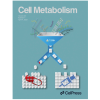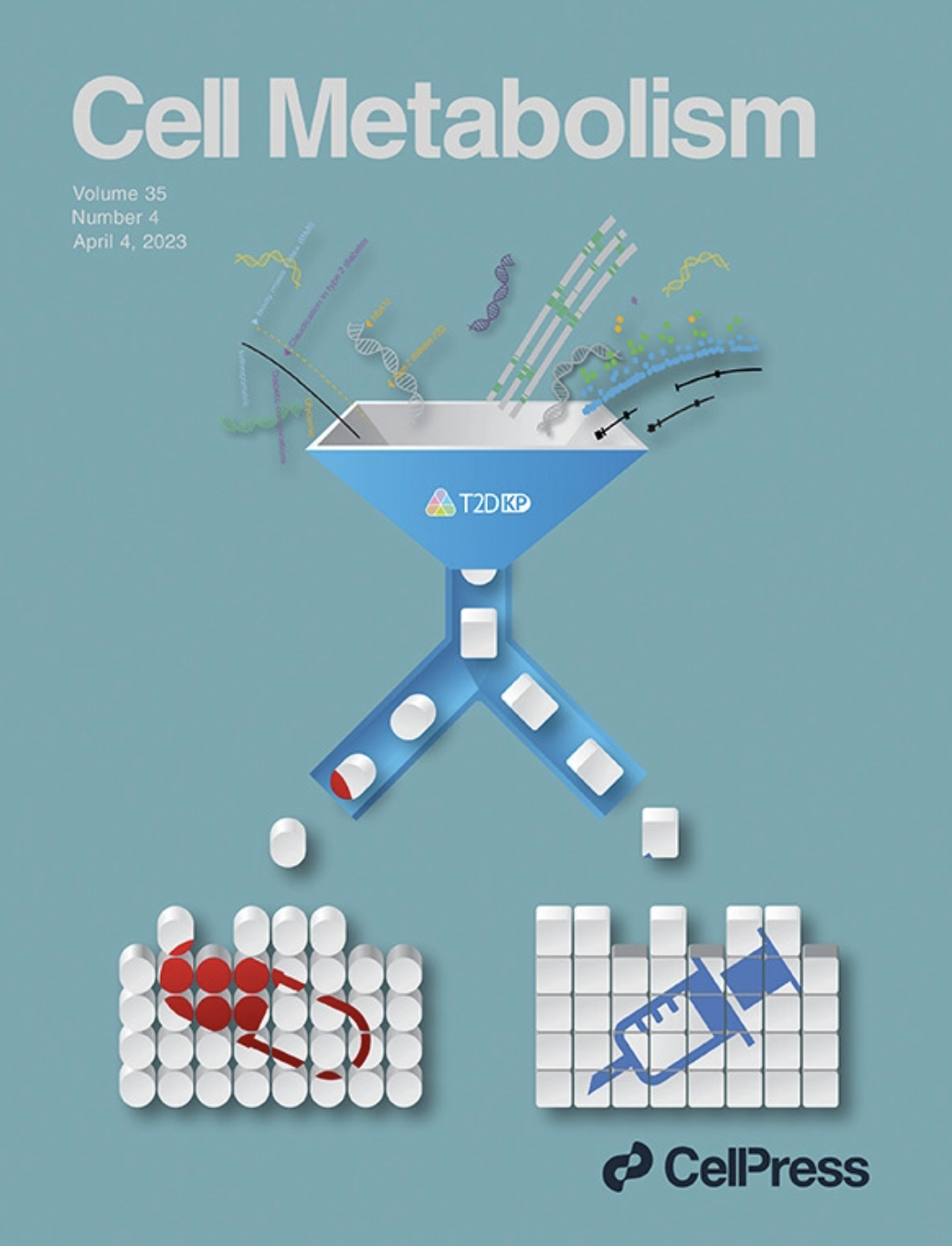Human genetic and genomic data hold valuable clues that could accelerate research into common diseases such as type 2 diabetes (T2D), but these "big data" are often difficult to access and interpret, even for biomedical researchers. To address this gap, the open-access Type 2 Diabetes Knowledge Portal resource (T2DKP; type2diabetesgenetics.org) analyzes, summarizes, and represents these data, translating them into knowledge that can be applied to improved therapeutics and personalized medicine for patients with T2D. An article published today in Cell Metabolism further increases the accessibility of this knowledge by laying out workflows that can help researchers use the portal to learn whether human genetic and genomic data support their hypotheses.
|
|
| The Cell Metabolism cover image that accompanies the article illustrates how the T2DKP integrates multiple types of genetic and genomic data to provide insights that can be the building blocks for new therapeutics. |
The T2DKP was created in 2015 under a new paradigm for collaborative research. Funded by the National Institute for Diabetes and Digestive and Kidney Diseases (NIDDK) and the Foundation for the National Institutes of Health (FNIH), the Accelerating Medicines Partnership® in T2D (AMP® T2D) brought together academic and industry researchers in a precompetitive space to generate new data and represent them on the T2DKP. Our goal in this effort was to build a resource that not only supports sharing and utilization of genetic and genomic data, but also exposes the accumulated knowledge generated across the diabetes genetics community to the wider research community. The commitment of the T2D research community to sharing results and knowledge has been crucial to the success of the T2DKP and spurred an expansion of the project into the Accelerating Medicines Partnership® in Common Metabolic Diseases (AMP® CMD). "The original vision of the Knowledge Portal was to bring the world's genetic and genomic data on type 2 diabetes and related traits together for everyone. With the help of investigators worldwide, we are achieving that goal, now with the broader target of cardiometabolic diseases," says Dr. Michael Boehnke, Richard G Cornell Distinguished University Professor of Biostatistics at the University of Michigan, a Principal Investigator on the AMP T2D and AMP CMD projects.
Launched with just 9 datasets, the T2DKP now includes data from 431 genetic datasets relevant to T2D and 404 additional traits and diseases, as well as more than 5,200 functional genomics datasets. The development of novel software, methods, and interactive tools to combine and analyze these disparate data types has also been an important part of this collaborative effort.
The article published today, entitled "The Type 2 Diabetes Knowledge Portal: An open access genetic resource dedicated to type 2 diabetes and related traits" (Costanzo et al. 2023), demystifies genetic and genomic "big data" for non-geneticist researchers, laying out roadmaps for using the T2DKP to evaluate whether human genetics and genomics provide evidence to support a research hypothesis. The paper's senior author, Dr. Jason Flannick of Boston Children's Hospital and the Broad Institute, explains, "Although the portal has many regular users, we don't think that it's being used to its full potential. With this article, we wanted to help both new and existing users get more out of the portal, and also to document the portal’s data and philosophy all in one place."
As the field of complex trait genetics pivots from simply identifying genetic associations to predicting the set of genes and pathways involved in disease risk, the T2DKP and the other portals of the Knowledge Portal Network are evolving alongside it by adding new data types, tools, and visualizations. Dr. Jose Florez, Chief of the Endocrine Division and Diabetes Unit at Massachusetts General Hospital, comments, "Genetic information is becoming increasingly relevant to understand biological mechanisms, risk-stratify patients, or guide target identification for therapeutics; however, it is often opaque to the non-initiated. The AMP-CMD Knowledge Portal democratizes these data, which belong to all humanity, and makes them accessible to all investigators with an interest in cardiometabolic diseases."


